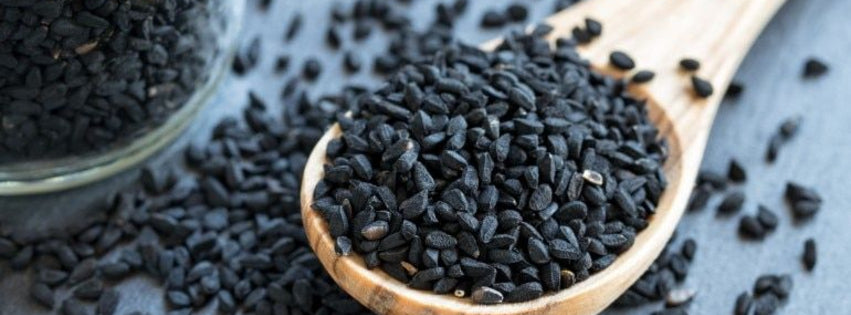Kalonji, also known as Nigella Seeds is a common spice used in different Indian cuisines. These seeds give a distinct taste and aroma to the food. Originally discovered by Egyptians, the tiny black seeds have been used in traditional Ayurvedic medicine for a very long time. They are loaded with vitamins, amino acids, crude fiber, proteins, and fatty acids. Adding a small amount of Nigella Seeds in your diet can prove beneficial in treating numerous health problems. Here are 5 reasons why these tiny black seeds are good for health.

-
Reduces inflammation
The black seeds contain an active compound called Thymoquinone, which can help to reduce chronic inflammation that mostly lead to a severe health disorder. Consuming these seeds in a moderate amount daily can help to reduce swelling in the body.

-
Protects liver
Our liver is an important organ of our body that carries different crucial functions like removing toxins, metabolizing drugs and processing nutrients. Kalonji can protect the liver from an injury or any kind of damage and improves its efficiency.
3. Prevents diabetes
The small seeds prevent the sudden spike of sugar level in blood and minimises other symptoms of diabetes. Regular intake of kalonji can also decrease your cholesterol level. If you are suffering from diabetes then you should drink kalonji infused water every morning on an empty stomach.
4. Fight’s acneKalonji oil can make your skin smooth and supple. This is quite effective especially in winter season when the cold and harsh wind makes your skin dry and dull. Apply kalonji oil on your face twice daily to get rid of blemishes and acne.

-
Has cancer-fighting properties
Kalonji is packed with antioxidants, which can help to neutralize free radicals and fight cancer-causing cells. It is beneficial in treating different types of cancer including pancreatic, lung, cervical, prostate, skin and colon cancers.





